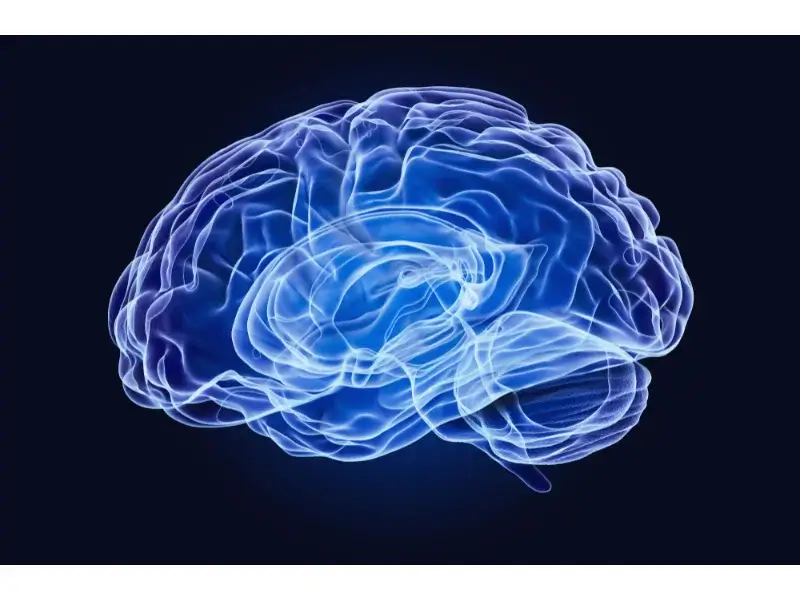Neurodevelopmental disorders, often linked to childhood, can persist into adulthood, affecting cognitive and emotional well-being.
75% of children with ADHD continue to experience symptoms into adulthood, and many struggle with social interactions, executive functioning, and career progression without realizing these challenges are tied to neurodevelopmental disorders.
Identifying neurodevelopmental issues in adults is an important step in improving mental health and ensuring a better understanding of oneself.
Unveiling Neurodevelopmental Disorders in Adults
The Spectrum of Neurodevelopmental Disorders Beyond ADHD
Neurodevelopmental disorders encompass a wide range of conditions beyond ADHD, such as Autism Spectrum Disorder (ASD), learning disabilities, and intellectual disabilities.
While ADHD is the most commonly recognized, other disorders often go unaddressed due to their subtler manifestations in adults.
Autism, for example, may present in ways that differ from what is commonly seen in children.
In adults, it can show up as difficulty with social interactions, rigid thinking patterns, and struggles in workplace or personal relationships.
Additionally, learning disabilities such as dyslexia can affect adults in ways that impact their job performance, self-esteem, and ability to function in daily life, even though these individuals may have developed coping mechanisms that hide these challenges.
As awareness of these disorders grows, more adults are recognizing traits they may have overlooked for years.
Recognizing the Overlooked Symptoms in Adults
Adults may struggle with symptoms that are not typically recognized as related to neurodevelopmental disorders.
Symptoms like disorganization, difficulty managing time, or a tendency to feel overwhelmed with routine tasks can be mistaken for laziness or poor work habits.
In reality, these behaviors may be linked to an underlying neurodevelopmental issue that impacts executive functioning.
Executive function is essential for tasks such as planning, organization, and impulse control, and difficulties in these areas can significantly affect daily life.
For instance, adults with ADHD often face challenges with maintaining focus, forgetting important appointments, or jumping from one task to another without completing them.
These signs can be mistakenly attributed to stress or anxiety, making it harder to identify the root cause.
Understanding that these behaviors might stem from a neurodevelopmental disorder can lead to more targeted support and treatment.
This recognition allows for a better understanding of the struggles and provides an opportunity for a clearer path to diagnosis and management.
The Impact of Neurodevelopmental Disorders on Daily Life
Navigating Social Challenges and Relationships
Neurodevelopmental disorders in adults can make social interactions more challenging.
Conditions like ASD can make it difficult to read social cues, understand sarcasm, or maintain conversations, leading to social isolation or strained relationships.
For those with ADHD, impulsivity can cause interruptions or unthoughtful actions, often perceived as rude or inconsiderate.
These issues can result in frustration in personal and professional relationships.
Adults with undiagnosed neurodevelopmental disorders may feel misunderstood or out of place.
This can lower self-confidence and increase the risk of developing depression or anxiety.
Coping with Workplace Dynamics and Career Development
Workplaces can be particularly challenging for adults with neurodevelopmental disorders.
Those with ADHD may struggle with tasks requiring sustained focus, like long meetings or detailed reports.
Others may have trouble with organization or time management.
Adults with learning disabilities might find certain tasks more difficult, affecting job performance and advancement.
These struggles can lead to feelings of inadequacy or frustration.
This, in turn, can impact job satisfaction and career progression.
Adults diagnosed with these disorders and who receive appropriate treatment can develop coping strategies to manage symptoms.
This may include accommodations such as more frequent breaks, a quieter workspace, or a structured routine for better organization.
The Diagnosis for Adults

Understanding the Assessment Process
Diagnosing neurodevelopmental disorders in adults can be more challenging than diagnosing them in children.
Adults may have developed coping strategies over the years that mask their symptoms, making it difficult for clinicians to identify the root causes of their struggles.
A thorough assessment typically involves interviews with the individual, family members, or close friends, and a review of developmental history.
In some cases, adults may seek diagnosis later in life after years of struggling with undiagnosed symptoms.
Getting a proper diagnosis can be life-changing, as it allows individuals to understand the root causes of their challenges and access the appropriate treatments and support.
Key Differences in Diagnosing Adults Compared to Children
The diagnostic process for adults differs from that for children in several key ways.
While children may show clear signs of neurodevelopmental disorders, adults may present with more subtle or generalized symptoms.
Additionally, adults may also have co-occurring mental health issues, such as depression or anxiety, which can further complicate the diagnosis.
Misdiagnosis and Underdiagnosis in Adults
Why Many Adults Go Undiagnosed or Misdiagnosed
Many adults with neurodevelopmental disorders go undiagnosed or misdiagnosed, often due to a lack of awareness of how these conditions manifest in adulthood.
ADHD, for instance, is often diagnosed in children, but many adults with ADHD never receive a formal diagnosis.
The symptoms of neurodevelopmental disorders in adults may look different from those in children, which can lead to misdiagnosis or missed diagnosis altogether.
In some cases, symptoms may be attributed to other mental health conditions, such as depression or anxiety, which can overshadow the underlying neurodevelopmental disorder.
The Consequences of Not Recognizing the Signs Earlier in Life
Failing to recognize and address neurodevelopmental disorders in adulthood can have serious consequences.
Without proper treatment, individuals may continue to struggle with social relationships, job performance, and mental health.
Over time, the effects of untreated conditions can lead to a decline in self-esteem, increased stress, and even the development of other mental health disorders.
Recognizing neurodevelopmental issues earlier in life can help prevent these negative outcomes and provide a path for treatment and coping strategies.
Treatment and Management Strategies
Personalized Therapy Options for Adults

Effective treatment for neurodevelopmental disorders in adults requires a personalized approach.
This might include therapy, medication, or lifestyle changes.
Cognitive-behavioral therapy (CBT) is often used to help adults with ADHD manage their symptoms, while social skills training and occupational therapy can support adults with ASD.
Medication can also play a role in managing symptoms, especially for conditions like ADHD.
Finding the right combination of treatments can make a significant difference in an adult’s ability to manage their symptoms and thrive in daily life.
Lifestyle Adjustments and Coping Mechanisms
In addition to therapy and medication, lifestyle adjustments can help adults with neurodevelopmental disorders better manage their symptoms.
Regular exercise, a healthy diet, and good sleep hygiene can improve mental health and cognitive function.
Adults with ADHD, for example, may benefit from structure and organization in their daily routine, such as using planners or timers to stay on task.
Coping mechanisms such as mindfulness and stress-reduction techniques can also help manage anxiety and improve overall well-being.
Find Personalized Care for Neurodevelopmental Disorders in Adults at CNS Center AZ
Neurodevelopmental disorders in adults often go unnoticed or misdiagnosed due to their subtle symptoms and the coping mechanisms people develop over time.
Recognizing these conditions can make a significant difference in improving mental health and overall well-being.
The right diagnosis, therapy, and support can help individuals manage their symptoms and lead fulfilling lives.
If you’re experiencing challenges that may be linked to neurodevelopmental disorders, our team at CNS Center AZ is here to help.
Reach out today to schedule a consultation and take the first step toward better understanding yourself and improving your quality of life.





